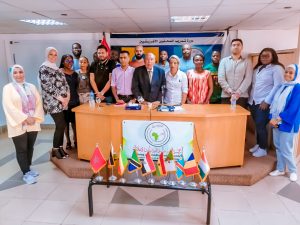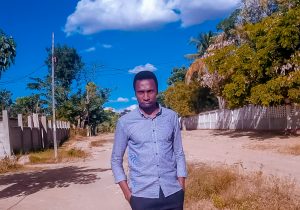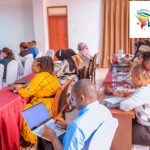
(This Article written by Hamad Rashid and licensed to be published here by Loyal Media).
In African countries, Energy has not been interpreted in practice as they interpret it in European and Western countries, which has caused Neo-colonialism to flourish in Africa today.
In the 59th training of young journalists in Africa that continues in Cairo, Egypt in the Offices of the Media Authority under the coordination of The Union of African Journalists in collaboration with The Supreme Council for Media Regulation, the advisor of the Union of African Journalists, Author of several books on Palestine, the Middle East, and Africa who is currently a Secretary General of Africa Society, Ambassador Ahmed Haggag, explained to the journalists participating from 15 African countries the challenge of Energy in Africa, so that they have the knowledge that will lead them to write and research those issues for the interests of their African countries.
Haggag added that “Energy is a wide area, it does not end only in Oil and Gas, but it reaches all the products produced in all areas as well, it leaves environmental effects and climate change that Africa also fails to deal with”.
The message portrayed by Ambassador Ahmed to the young journalist “The African continent has been faced with colonialism for many years not only for political reasons but the economy and the trade market, which leads to the exchange of raw materials and products that use energy to be processed and sold back to Africa, so it is important that journalists understand the context and write analysis articles”.

THE SPEED OF ENERGY CONSUMPTION AND ITS RESULTS FOR AFRICA.
According to the Institute of Statistical Review of World Energy from the quotation from the Worldometers website, it is estimated that the daily consumption of petrol and diesel oil is more than 60, 000, 000 Liters, you can read the statistics of this time by clicking on this link Worldometer – real time world statistics (worldometers.info). These figures show how Energy is important in producing products and their use, including cars.
Also, more than 300,000 forests have been lost so far this year, where the speed is contributed by industrial machines used to cut trees, while the biggest victims are African countries that sell energy sources for the use of companies and countries in Europe and the United States.
Likewise, Worldometer statistics explain more than 700,000 people around the world have died of hunger by the year 2024, where the majority are from African countries that have failed to invest in energy to drive industrial production so that their people can at least subsist on bread.
However, more than 60 million cars have been produced so far this year, with the largest customers expected to be developing countries in the Global South, where they can invest in that technology so that they can use their energy to produce cars if they see there is productivity, instead, they sell the energy that goes to make cars and then they go back to buy them at a high cost while their people continue to be poor.
An analyst of political and economic issues in the East African region, the Great Lakes, Europe, and South and North America Gikaro Benard from Tanzania, being interviewed explained, “As the basis of Capitalism and Imperialism cannot be run by many people but it also creates two classes, the ruling class and working class (the richest and poorest) as well as many energy problems stem from neo-colonial policies For example, energy like Gas and Uranium mines cannot be given priority to be used in Africa because capitalists need it to develop their industries and generate Electricity for Nuclear reactors. Another example is the country of Niger, where 80% of their electricity comes from Nigeria, but they have Uranium minerals that have contributed significantly to the production of electricity in France”.

Talking about the responsibility of the journalist in these dilemmas, they must understand the full context and then write scientific articles of analysis with investigations, also collaborate with other journalists from their regions as well as witness some of the events that explain the source of Neo-colonialism, including visiting places that preserve the history of the liberation of the African continent, because if the journalist is not aware of the reality of the matter, it may lead to writing a publication that benefits the capitalists more, without being aware of it himself.
Concerning the energy issue caused by colonialism, speaking to journalists on the subject of international competition in Africa and the effects on the continent’s interests, the senior journalist and researcher of African affairs, Ahmed Embabi from Egypt, has said “Africa is failing to be an international competitor and continue to pay the losses of the interests of the continent, because of its history of colonization, the looting of its raw materials, and the slave trade that flourished many years ago”.
He added that “Europe and the United States believed that Europeans could go anywhere in Africa and do anything without any conditions, currently, Africa is not competitive because it is still facing the problems of hunger, lack of good education, and poverty, also, Africa should invest in the power of its resources while journalists continue to tell the truth with sufficient information” concluded Ahmed Embabi
OPENING OF TRAINING AND ITS OBJECTIVES.
The 59th Young African Journalists program started on September 7 and will end on September 26, 2024, where at the opening ceremony a representative from the Ministry of Foreign Affairs Mr. Ezzat Ibrahim said, “The course aims to connect the media and African journalists and that the Egyptian Government will continue to support the African Union of Journalists so that they continue to build more journalists in its foundations”.
President of the Supreme Council for Media Regulation Mr. Karam Gabr said, “This course for us, strengthens the relations between Egypt and Africa and confronts the challenges in the industry and stimulates the well-being of African communities for journalists and their media”.

Mr. Karam also talked about the course involving learning visits to museums and the history of the Independence of Egypt and Africa, including the pyramids.
The 3-week course involves representatives from 15 countries including Egypt, Tanzania, Ghana, Algeria, Congo DRC, and Ivory Coast.

